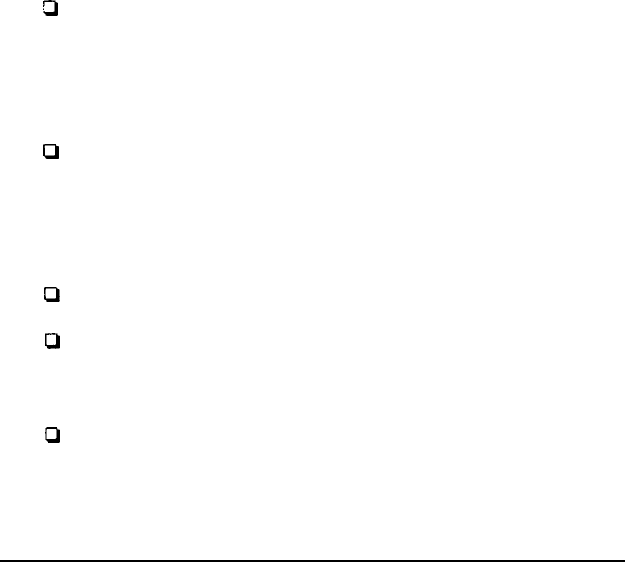
Because of these incompatibilities, always indicate the
diskette type and density when you label your diskettes.
(Usually this information appears on the manufacturer’s
label.)
If you have any combination of the above drives (1.44 MB,
1.2MB, 720KB, or 360KB), you can copy files from one drive
to another-using COPY or XCOPY-as long as the correct
diskette type is in each drive. You can also use these
commands to copy files between a hard disk and any type of
diskette. However, you cannot use the MS-DOS DISKCOPY
command to copy from one diskette drive to another if the
two drives are not the same type. For more about copying
files and diskettes, see your MS-DOS manuals.
Caring for Diskettes and Diskette Drives
Follow these basic precautions to protect your diskettes and
avoid losing data:
3
a
a
a
a
If you have a diskette that contains data you don’t want
to accidentally write over or erase, be sure you write-
protect it. This is especially important for your operating
system and application program diskettes. See “Write-
protecting Diskettes,” below, for more details.
Do not remove a diskette from the diskette drive or reset
or turn off the computer while the drive light is on. This
light indicates that the computer is copying data to or
from a diskette. If you interrupt this process, you can
destroy data.
Remove all diskettes before you turn off the computer.
Keep diskettes away from dust and dirt. Small particles of
dust or dirt can scratch the magnetic surface, destroy
data, and ruin the read/write heads in a diskette drive.
Never wipe, brush, or try to dean diskettes in any way.
3-10
Using Your Computer


















